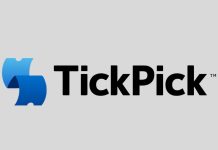The latest trend in sports drinks is quite a departure from the traditional, sugar-filled performance beverages catered to athletes – this new generation of sports drinks focuses on cognitive benefits and overall health for all consumers.
Health-conscious consumers are looking for functional, practical ways to stay hydrated and nourished throughout the day, said drink developer Imbibe's Communications and Events Associate Erin Costello. Costello added that 25% of consumers say that the amount of sugar in the Nutritional Information greatly influences their choice, and consumers are also interested in low-calorie beverages. Additionally, buyers are interested in vitamins and minerals that will enhance their daily physical and mental performance, Costello explained, such as electrolytes, botanicals, caffeine, or B vitamins.
"It's now about consuming functional drinks throughout the day to provide multiple benefits," Costello told Nutritional Outlook Magazine.
Athletes are also no longer the target market for sports drinks, Costello said. While more athletic consumers are still interested in beverages that aid with sports activities, other consumers seek drinks that facilitate physical support or even mental health support. She mentions that companies like G-Fuel are creating multiple product lines with powders and liquids that advertise as enhancing video gamers' performance. Others, like TruBrain, offer 1 oz. beverage packets that are advertised to alleviate procrastination, lethargy, brain fog, and other focus-related issues using formulas developed by neuroscientists from the University of California, Los Angeles (UCLA).
In order to get ahead of this trend, Costello says, large sports drinks companies will have to focus on creating clean labels with distinct brand storytelling and transparency around ingredients. They must also focus on marketing that utilizes social media influencers, as it appeals to a larger demographic. Additionally, it's crucial to invest in proactive regulatory compliance, Costello said, as product safety and provable health benefits are meaningful for consumers.




















